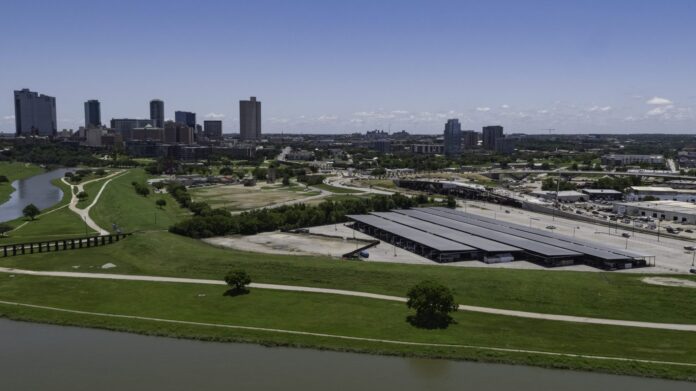The city of Fort Worth has approved a plan it hopes will provide new funds and strategies to attract companies and high-quality jobs to the area.
At its Feb. 22 meeting, the City Council approved an update of the 2017 Fort Worth Economic Development Strategic Plan, along with a strategy that will create additional funds for economic development.
The plan calls for the city to dedicate money from expiring Tax Increment Financing districts, a portion of money dedicated to a certain area to improve infrastructure of an area, for economic development.
This funding could raise the annual incentive fund balance to somewhere between $15 million to $18 million during the next five years, according to a presentation to the City Council on Feb. 15.
Robert Sturns, economic development director for the city of Fort Worth, said the new funds could be particularly important in providing incentives for corporate relocations, a key goal of the Economic Development Plan.
“The city historically has only been able to utilize new tax increments generated from projects,” he said. “So again, you have a company that’s building a new facility on vacant land, that’s creating new taxes for the city. And so the incentive is tied to those new taxes that are generated. That’s how we’ve done it historically.”
But, Sturns said, if a company wants to relocate a corporate headquarters to an existing office space, the amount of new taxes generated would be lower.
“So they’re going to bring people, they’re going to bring some equipment, but you’re not really generating a lot of new taxes because, again, the resources aren’t there. So the fund will allow us to invest in some things like relocation costs, for example, to offset some of those expenditures.”
Chris Wallace, president of the North Texas Commission, an advocacy organization for the 13-county region, said the area is already strong economically, but can be stronger when various partners are working together.
“We have the climate that is conducive for attracting and retaining and expanding business in this area,” Wallace said. “When you have the city, the chamber, the tourism agencies all on the same page and working in one common direction, as it sounds like the case is here, you can be much more effective in your economic development.”
Fort Worth has the least amount of funds dedicated to attracting businesses compared with other cities in the area such as Arlington, Irving and Dallas, according to a report issued to City Council on Feb. 15.
Last year, 21 headquarters moved to Dallas-Fort Worth, but none landed in Fort Worth proper, according to information from the Dallas Regional Chamber.
“We’re fully supportive of what they’re doing, and it’s great for the city to be thinking outside the box on developing new programs that can support existing and new businesses coming into town, so we applaud their efforts,” said Chris Strayer, executive vice president of Economic Development at Fort Worth Chamber of Commerce, when the plan was first announced.
Fort Worth and other large cities have a disadvantage when it comes to economic development. Cities over 500,000 people can’t take advantage of a sales tax that goes to economic development, the document said. Because of this, larger cities have to get creative with how to raise money dedicated to development.
Fort Worth has earmarked $2 million this year for “deal closing” money, which is used to provide relocation assistance and other costs for companies looking to move to the city.
It also has an additional $5.9 million from selling a piece of land. Still, it’s pocket change compared to the other cities that have dedicated deal closing money.
In Texas, Dallas has $2.4 million allocated this year along with a $40 million bond package and $7 million in American Rescue Plan funds it will spend over the next three years. In Arlington, the city has $17 million raised from a sales tax referendum passed in November 2020 to fund its Arlington Economic Development Corp., according to a city staff report.
Seth Bodine contributed to this report.
Bob Francis is business editor for the Fort Worth Report. Contact him at bob.francis@fortworthreport.org. At the Fort Worth Report, news decisions are made independently of our board members and financial supporters. Read more about our editorial independence policy here.
This article was originally published by Fort Worth Report.






